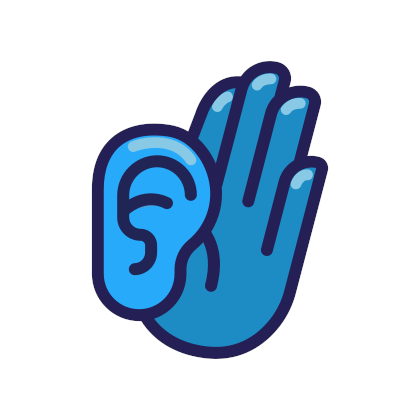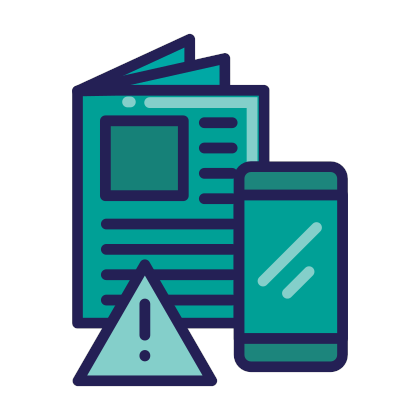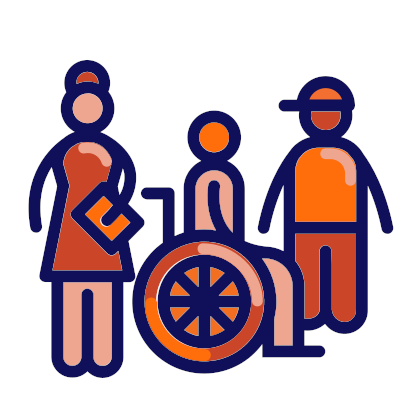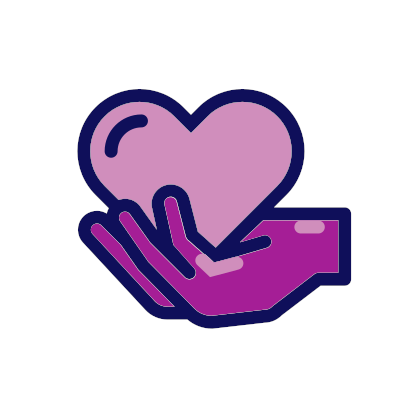Addressing controversial issues

However, being able to discuss sensitive and controversial issues in a respectful way is a vital skill in a democratic culture.
Schools must be places where students feel safe to engage in debates with people who have different opinions. Through the careful management of discussions on controversial issues, schools can promote freedom of expression, as well as inclusion, tolerance, and human rights and prevent, or counter, the use of hate speech by students.
To achieve this, a school action plan on managing controversial issues – which provides staff training – should be adopted as a priority.
Facts & Figures
71% of teachers and school leaders surveyed agreed that it is very important that all students in their school express their views openly, even when their views might be controversial.[1]
In response to the question, ‘How valuable is the study of the Holocaust for primary children?’ 88% of teachers viewed Holocaust teaching to be either ‘worthwhile’ or ‘very valuable’ to the primary pupil, although only 48% had actually taught it.[2]
What are controversial issues?
Controversial issues are issues which arouse strong feelings and divide communities.
Issues like these can arise anywhere at any time. They vary from the local to the global – from minarets to climate change. They also vary from place to place, e.g., gay marriage is relatively uncontentious in some countries, but highly controversial in others. Some are long-standing controversies, e.g., the ‘Troubles’ in Northern Ireland, the Israel-Palestine conflict and the ‘Kurdish issue’ in Turkey; while others are more recent, e.g., refugees, violent extremism and transgender issues.
What all these issues have in common is that they are complex, not easily settled by appeal to evidence alone and highly emotive – so much so that people often have difficulty discussing them rationally.
Why is it important to address controversial issues at school?
While it might be tempting for schools to try to shy away from issues like these, this is neither beneficial nor practical.
Discussing controversial issues helps students with different backgrounds and lifestyles to learn to live and work together peacefully and respectfully. It encourages them to listen to each other and talk through their differences sensitively. It also challenges them to think critically about their own beliefs and values and gives them confidence and skills to express these publicly.
Talking through difficult issues together develops a number of important democratic competences, e.g., openness to other cultures and beliefs, analytical and critical thinking skills, flexibility and adaptability, and tolerance of ambiguity - all of which lie at the heart of the Council of Europe Reference Framework of Competences for Democratic Culture.
Handled well, it breaks down barriers and helps to defuse social tension between opposing groups, both in school and the wider community.
Exploring controversial issues has educational as well as personal and social benefits. Issues like these help to define some of the major social, political, economic and moral fault-lines in contemporary life and underpin academic learning in many school subjects.
The strongest argument for addressing controversial issues explicitly, however, is that, in practice, they simply cannot be avoided. If teachers do not raise these issues, their students will.
Through training in the teaching of controversial issues, I have found the courage to discuss openly with my students issues I thought I would never be able to do, e.g., about sexual abuse and the porn industry.” Teacher, Iceland
What are the challenges?
The biggest challenge is creating a school ethos in which students genuinely feel they can speak openly about their concerns without fear of vilification or ridicule.
Creating such an ethos requires a whole-school approach. It includes among other things:
- teachers having the confidence and skills to handle discussion of difficult issues in the classroom, e.g., knowing how to deal with their own prejudices and biases, protect vulnerable individuals and marginalised groups, present issues even-handedly, cope with a lack of expert knowledge, and handle spontaneous or unexpected questions and remarks constructively;
- school leaders encouraging their staff to take on issues which are controversial and maintaining a consistency of approach across the school, e.g., by providing leadership, professional development, opportunities for team teaching, guidance and support, and risk management;
- parents and local communities feeling assured that the school is on their side, e.g., being confident the school will not misrepresent or try to undermine their views or culture.
How can schools get active?
A good way for schools to begin is by:
- identifying where controversial issues already feature in the school curriculum and discussing how these are currently handled, e.g., evolution, climate change or animal testing in Science;
- considering new opportunities for introducing controversial issues into other school subjects and how they might be incorporated into teaching, e.g., the use and abuse of social statistics in Maths;
- developing ground rules for classroom discussion which guarantee everyone a voice to express their opinion and encourage respect for whoever wishes to speak;
- creating a small support group to help teachers develop techniques for managing discussion of difficult issues, e.g., how to ‘de-personalise’ an issue by using a story or historical parallel, or helping students to consider alternative perspectives by putting them in other people’s shoes;
- liaising with students and parents to ensure specific issues are handled fairly and with appropriate methods;
- introducing more opportunities for discussion in school life and decision-making generally, e.g., in parents’ meetings, staff meetings and pupil parliaments.
[1] ‘Free to speak, Safe to learn – Democratic schools for all’ Survey, First Trends, 2018
[2] Cowan & Maitles, ‘Feature or Footnote? Teachers’ attitudes towards the teaching of the Holocaust in primary schools in Scotland’.
 Resources on Addressing Controversial Issues
Resources on Addressing Controversial Issues
Multimedia
- Crossroads of European Histories - Multiple Outlooks on Five Key Moments in the History of Europe (CD + Book) (2009)
- Education for Democracy and Human Rights in 10 Steps (2017)
- How can schools support students to be active citizens?
- Living in harmony together: the role of schools? (2014)
- Re-Thinking Education Policy For The 21st Century (2014) (Jón Torfi Jónasson)
- Shared histories for a Europe without dividing lines (2014)
- Through the Wild Web Woods – An online Internet safety game for children - Teachers guide (2013)
- What is the Charter on citizenship and human rights education?
Official texts
- Comparative study on blocking, filtering and take-down of illegal internet content (2017)
- Education for change - Change for education
- Eradicating violence against children - Council of Europe actions (2008)
- ETINED - Volume 1: 7th Session of the Prague Forum (2016)
- Freedom(s) - Learning activities for secondary schools on the case law of the European Court of Human Rights (2015)
- Global Education Guidelines. A Handbook for Educators to Understand and implement Global Education (2012)
- Guidelines for educators on combating intolerance and discrimination against Muslims – Addressing Islamophobia through Education (2011)
- Human Rights and Democracy Start with Us - Charter for All: Brochure for children, Guide for educators and a Poster (2014)
- Report of the Intergovernmental Policy Forum: The right of learners to quality and equity in education – the role of language and intercultural skills (2010)
- The Lisbon Recognition Convention at 15: making faire recognition a reality (Council of Europe higher education series No. 19) (2014)
- Thematic factsheets highlighting the European Court of Human Rights relevant case-law on issues relating to media freedom
- What is the Charter on citizenship and human rights education?
Policy documents
- Addressing violence in schools (2016)
- Bullying: Perspectives, Practices and Insights (2017)
- Comparative study on blocking, filtering and take-down of illegal internet content (2017)
- Compasito - manual on human rights education for children (2000)
- Compass - manual for human rights education with young people online resource (2002)
- Competences for democratic culture - Living together as equals in culturally diverse democratic societies (2016) A conceptual model of competences
- Curriculum Development and Review for Democratic Citizenship and Human Rights Education (2015)
- Developing attitudes to recognition: substantial differences in an age of globalisation (Council of Europe higher education series No. 13) (2010)
- Digital citizenship education - Volume 1: Overview and new perspective. Supporting children and young people to participate safely, effectively, critically and responsibly in a world filled with social media and digital technologies. (2017)
- Digital Citizenship Education (DCE) - 10 Domains leaflet
- Education for change - Change for education
- Education for Democracy and Human Rights in 10 Steps (2017)
- Education for democratic citizenship: policies and regulatory frameworks (2003)
- Equal opportunities for all children: Non-discrimination of lesbian, gay, bisexual, transgender and intersex (LGBTI) children and young people (2016)
- Eradicating violence against children - Council of Europe actions (2008)
- ETINED - Volume 1: 7th Session of the Prague Forum (2016)
- ETINED - Volume 2: Ethical principles (2016)
- ETINED - Volume 4: Codes of conduct for teachers in Europe: A background study (2017)
- ETINED - Volume 5: South-East European Project on Policies for Academic Integrity (2018)
- Freedom(s) - Learning activities for secondary schools on the case law of the European Court of Human Rights (2015)
- From linguistic diversity to Plurilingual education: Guide for the development of language education policies in Europe (2007)
- Gender Matters. A manual on addressing gender-based violence affecting young people 2007 (reprint 2013)
- Global Education Guidelines. A Handbook for Educators to Understand and implement Global Education (2012)
- Guide for the development and implementation of curricula for Plurilingual and intercultural education (2016)
- Guidelines for educators on combating intolerance and discrimination against Muslims – Addressing Islamophobia through Education (2011)
- Higher Education and Democratic Culture: Citizenship, Human Rights and Civic Responsibility (Council of Europe higher education series No. 8) (2008)
- History education in Europe. Ten years of co-operation between the Russian Federation and the Council of Europe (2006)
- Human Rights and Democracy in Action Pilot Projects Scheme (2013-2014)
- Intercultural dialogue on Campus (Council of Europe higher education series No. 11) (2009)
- Language support for adult refugees: a Council of Europe toolkit (2017)
- Learning to live together. Council of Europe report on the state of citizenship and human rights education in Europe (2017)
- Living with Controversy - Teaching Controversial Issues Through Education for Democratic Citizenship and Human Rights (EDC/HRE) (2016)
- Managing controversy (2017). A self-reflection tool for school leaders and senior managers
- Multicultural Societies, Pluricultural People and the Project of Intercultural Education (2009)
- Open minds, free minds - No easy prey for counterfeit medicines and similarly dangerous medicines - Psycho-pedagogical concept guide for teachers (2015)
- Plurilingual and intercultural competence (2009)
- Plurilingual and intercultural education as a project (2009)
- Plurilingual and intercultural education as a right (2009)
- Quality history education in the 21st century. Principles and guidelines (2018)
- Re-Thinking Education Policy For The 21st Century (2014) (Jón Torfi Jónasson)
- Reference Framework of Competences for Democratic Culture Volume 1: Context, concepts and model (2018)
- Reference Framework of Competences for Democratic Culture Volume 2: Descriptors (2018)
- Reference Framework of Competences for Democratic Culture Volume 3: Guidance for implementation (2018)
- Report of the Intergovernmental Policy Forum: The right of learners to quality and equity in education – the role of language and intercultural skills (2010)
- Speaking across borders: the role of higher education in furthering intercultural dialogue (Council of Europe higher education series No. 16) (2010)
- Specifying languages’ contribution to intercultural education. Lessons learned from the CEFR (2013)
- Strategic support for decision makers - Policy tool for education for democratic citizenship and human rights (2010)
- Students as suspects? - The challenges of counter-radicalisation policies in education in the Council of Europe member states (2018)
- The linguistic integration of adult migrants: from one country to another, from one language to another (2014)
- The Lisbon Recognition Convention at 15: making faire recognition a reality (Council of Europe higher education series No. 19) (2014)
- The public responsibility for higher education and research. (Council of Europe higher education series No. 2) (2005)
- The university as res publica - Higher education governance, student participation and the university as a site of citizenship (Council of Europe higher education series No. 1) (2004)
- Thematic factsheets highlighting the European Court of Human Rights relevant case-law on issues relating to media freedom
- Volume 3 - Ethical behaviour of all actors in education
- What is citizenship and human rights education? (2015) Leaflet
 Related schools projects
Related schools projects
Address: M. PAPAIOANNOU 1, AVLONAS 190 11
Country: Greece
Project: Bridging languages and memories to foster multiple identities: “Never leave your backpack behind!” (“Backpack ID”)
 Working language during the project:
Working language during the project:
- Greek
- English
- German
- Italian
- Swedish
- Farsi
 Themes of the Council of Europe campaign “FREE to SPEAK, SAFE to LEARN - Democratic Schools for All” covered:
Themes of the Council of Europe campaign “FREE to SPEAK, SAFE to LEARN - Democratic Schools for All” covered:
- Making children’s and students’ voices heard
- Addressing controversial issues
- Preventing violence and bullying
- Tackling discrimination
 Competences from the Reference Framework of Competences for Democratic Culture (CDC) addressed and where / how they were integrated:
Competences from the Reference Framework of Competences for Democratic Culture (CDC) addressed and where / how they were integrated:
- Valuing cultural diversity
The specific competence is among the main objectives of the project. The personal books, the e-book and the videos that were created by the students aimed at revealing the students’ multiple identities and diversity as a source of power and richness. - Linguistic, communicative and plurilingual skills
The project is based on students’ expression and communication. It encourages them to be flexible and discover ways in order to overcome obstacles so as to express themselves creatively and communicate using a variety of means. - Knowledge and critical understanding of the self
While working on their personal books as well as on the material produced by their classmates, the pupils were urged to express their thoughts and emotions, to reflect on their motives, values and beliefs, to challenge their prejudices and stereotypes and to work on the relationship between them and the wider context they live in.
 Target group age range:
Target group age range:
- 11-15
 Level of education:
Level of education:
- Lower secondary education
Short description of the project:
1st Gymnasio Avlona is a secondary school in a semi-rural area in Attica. The area has been host to a large number of immigrants over the last decades. Furthermore, a refugee reception centre was set up very close to school four years ago. Adolescents from this reception centre are pupils at our school. As a result, some classes have up to 37% immigrant/refugee pupils. Therefore, issues such as inclusion, tolerance, diversity, intercultural understanding, human rights, discrimination, and culture of democracy in school everyday life are crucial for our school.
The above issues are the core of our project that is part of a 3 year Erasmus KA2 programme entitled: “Bridging languages and memories to foster multiple identities: “Never leave your backpack behind!” (“Backpack ID”) with 7 partners: two universities, one network, one municipal reception unit, one NGO, one research centr and our school.
The main purpose of the project is to promote the inclusion of refugee children and adolescents at school while fostering harmonious inter-group relations in local communities. As part of this programme, our school took part in the design of the project, in the production of the educational material and in the development of innovative practices. We also led the pilot implementation required for most of the stages.
More specifically, using a narratives multimedia approach, the pupils who participated created their Personal Books. The Personal Books are multi-dimensional and include written narratives, graphs, maps, photographs, videos, music, songs, hobbies or recipes, which reflect the pupils’ personal and family history as well as their contemporary everyday life. After the collection and selection of the Personal Books, we created an e-book and some videos. At the next stage, we developed teaching scenarios and we created videos reflecting the teachers’ experience, to be included in the anthology and the teachers’ kit that were produced.
In addition,
- a) The innovative Backpack-ID programme was implemented in front of the whole school during the thematic week which was closely linked to the notion of human rights.
- b) The Backpack-ID programme was linked to the “Reference Framework of Competences for Democratic Culture”. More specifically, the same narratives multidimensional approach was used to help the pupils reflect on their democratic competences, speak about their experiences, and prepare their portfolio.
- c) The Backpack-ID programme was linked to the programme: “School for All – Integration of Refugee Children in Greek Schools” (Greek Ministry of Education, funded by the European Wergeland Center).
- d) A part of the Backpack-ID material will be included in the adolescent museum we are creating at school, the main aim of which is to make pupils’ voice heard on several aspects of their everyday life.
- e) The Backpack-ID programme was presented by teachers of our school to teachers and stakeholders involved in refugee education as an example of our school’s good practices (e. g. seminars: a) Teach4Integration (EKPA & UNICEF), b) “It Could be Me – It Could be You” (Hellenic Theatre/Drama & Education Network & UNHCR Greece), c) Freinet schools network)
 Aims/objectives
Aims/objectives
The main purpose of the project is to promote the inclusion of refugee children and adolescents at school while fostering harmonious inter-group relations in local communities. It also aims at empowering all students, both new-comers and majority-group members, and places emphasis on students’ own multiple group memberships and multiple skills and assets.
The main objectives pursued by Backpack-ID are:
- 1. Empowering students by encouraging them to draw on their cultural, linguistic, and other identity resources;
- 2. Creating a safe space, developing an inclusive atmosphere and promoting intercultural awareness in school;
- 3. Making children and students’ voices heard;
- 4. Promoting students’ ability to reflect on similarities and differences amongst them, and on the positive elements of diversity;
- 5. Mapping the variety and multiplicity of students’ identity resources on a comparative transnational basis;
- 6. Strengthening the ties between school, family and local community;
- 7. Producing a set of comprehensive, innovative educational materials for multi-media use by students and teachers.
 Expected results/outcomes
Expected results/outcomes
Participants are expected to:
- Become familiar with the concept of multiple origins and multiple identities.
- Realise that multiple identities are elements of enrichment and empowerment, and realise the complexity of their own identity and their own origin.
- Recognise the pupils’ right to be heard and feel safe to express themselves.
- Develop the ability to recognise similarities and differences between people at different levels, and be open to learning about the differences in those around them.
- Be able to challenge their preconceptions and ask more in-depth questions about themselves, the differences they see in others, and the world around them.
- Develop their sense of self-esteem as a result of the systematic work with their identities.
- Improve their literacy in the new language.
- Realise and strengthen the bonds between their family, their school and their social environment/local community.
 Changes
Changes
“Working with the Backpack in the classroom gave teachers the opportunity to design experiential lessons based solely on material created by teens. The students in the class worked on texts, videos, and drawings that had been created by their peers. This was something that both children and teachers experienced for the first time, as most lessons are usually based on textbooks written by adult writers. In contrast, during this project, we worked on material created by 12, 14 and 16-year-old students. This mobilised the pupils a lot. But beyond that, it empowered them. The students felt that it was possible for their own speech to be part of the school curriculum. They thus started talking in a way that most of them had never done before. Through this process, we got to know each other better, even those we thought we already knew well. Somehow, Backpack ID gave a voice to the children, gave a voice to the students and brought them to the fore.
The fact that the material is created by children from different countries - Greece, Italy, Albania, Germany, Afghanistan, Syria … led to this change. In addition, it is multilingual and multimodal. These characteristics particularly unlocked the refugee children. A comfortable atmosphere of tolerance and acceptance of various ways of communication was created. Our refugee students began to struggle to express themselves in many ways and in any language they could...” (from a video included in the teachers’ kit)
“What impressed me is the process of searching for family stories with the kids. Their initial attitude was awkwardness. But little by little, step by step, by insisting and being patient, we managed to lead them to discover details about their lives. The involvement of the family was something that excited all the members and the students and the parents. We, the teachers, as well, discovered and saw the children in a new light. This was a great joy. The parents embraced the whole procedure with great enthusiasm and were very supportive of their children's research. The children shared their stories not only with us but also with their classmates. This gave them the opportunity to get to know each other better, more deeply and, different relationships were thus developed.” (from a video included in the teachers’ kit)
 Challenges you faced
Challenges you faced
The main challenges we faced were:
- How to link the project with the school curriculum
- How to create a safe environment which would help the participants to express themselves and communicate
- How to overcome students’ standard mode of expression or standardizing their mode of expression
- How to persuade ourselves – the teachers - to stand behind and give more space to the pupils.
 Time-frame of the project:
Time-frame of the project:
1/9/2017- 31/12/2020
 Council of Europe materials on citizenship and human rights education used while preparing or implementing your practice:
Council of Europe materials on citizenship and human rights education used while preparing or implementing your practice:
- Reference Framework of Competences for Democratic Culture
- All Different – All Equal
- Compass
- Compasito







